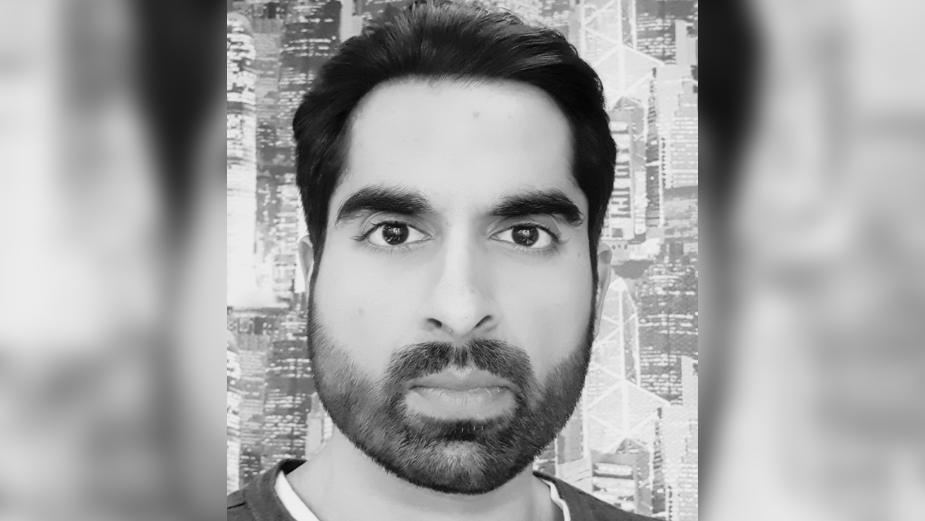
Planning for the Best: Being a 'Thought Seller' with John Thangaraj

John Thangaraj joined FCB in 2016 as executive planning director. In his previous role, he was head of strategy-North for Mindshare.
Thangaraj brings close to twenty years of marketing communications expertise to the table, having worked across the ecosystem- from qualitative research & brand marketing to account planning and media strategy. In past roles, he has worked across companies such as Quantum Consumer Solutions, Adidas, Rediffusion Y&R and Lowe Lintas.
LBB> What do you think is the difference between a strategist and a planner? Is there one?
John> Of course there is. But the reason the two terms are used so interchangeably is because good strategists need to plan for the future, while good planners need to be able to turn their understanding of the future into cogent, viable strategy. Strategists are fundamentally action oriented, whereas planners are fundamentally future oriented. Strategy without planning can often backfire, while planning without strategy can often be academic. The very best thinkers need to combine the two - which is far easier said than done.
LBB> And which description do you think suits the way you work best?
John> Neither. I think ‘thought seller’ is a far more accurate descriptor of the account planning/strategic function. A planner’s primary role is to think. About the brand, about the consumer, about the category, about culture, about problems, about solutions, about scenarios, about yesterday, about today, about tomorrow, about human behaviour, about politics, about economics, and about a hundred other things. But the selling of this thinking - whether internally to a creative partner or externally to a client, is where planners really earn their living. The most robust, most original thinking in the world is pointless unless it can be sold. Planning should never be an academic exercise. And planners should never be viewed as self-absorbed, over intellectualising navel gazers.
LBB> We’re used to hearing about the best creative advertising campaigns, but what’s your favourite historic campaign from a strategic perspective? One that you feel demonstrates great strategy?
John> That’s easy. It’s Pedigree’s Dogs Rule campaign, created by TBWA/Chiat/Day in 2007 (if memory serves). First, it entirely reframed the manner in which the brand was viewed: from a dog food company to a dog company. This simple but significant realignment of Pedigree’s self-view opened up an entirely new strategic road for the brand to walk down- one it continues to do so to this day. Second, it referenced the single most powerful truth of dog ownership: it is wholly, completely and hopelessly driven by emotion. Rationality has no role to play in the human-canine relationship. And finally, it drove the point home with a series of highly emotive commercials that reduced most dog parents (myself included) to a blubbering mess. Job done.
LBB> When you’re turning a business brief into something that can inform an inspiring creative campaign, do you find the most useful resource to draw on?
John> Imagination. A planner’s job needs to go beyond analysis and reportage. While these are no doubt integral parts of a planner’s toolkit, they merely form the base from which a leap of imagination needs to take place. The height, quality and audacity of this leap is what decides how truly inspiring a creative brief is likely to be.
LBB> What part of your job/the strategic process do you enjoy the most?
John> As boring and cliched as this is going to sound, it’s writing the presentation. Writing a presentation is like writing a book- it’s all about the story. I find the constant hate that PowerPoint receives undeserved. Like any tool, its utility is a direct function of the person using it. In the wrong hands, it can be coma inducing. In the right hands, it can be magical. Beginning a presentation with a blank slide, knowing you have a story to tell and then being able to tell it in your own unique voice…that’s a feeling that never gets old.
LBB> What strategic maxims, frameworks or principles do you find yourself going back to over and over again? Why are they so useful?
John> Authenticity. Simplicity. Self-belief. Which together also make for a fun acronym!
Authenticity is being able to walk a mile in your consumer’s shoes and coming up with something that is honest, intuitive and non-contrived. Authenticity is like deodorant. Things start to smell pretty bad when it’s not around.
Simplicity is power. Needless esotericism is a crutch that far too many planners have been taught to use. The most powerful ideas in the world are the ones that explain themselves.
And finally, self-belief. Unless you believe in your strategy, no one else can be expected to. For clients to buy into your strategy, they also need to buy into you. Which first begins with you buying into yourself.
LBB> What sort of creatives do you like to work with? As a strategist, what do you want them to do with the information you give them?
John> Secure ones. Security breeds open-mindedness and open-mindedness breeds collaboration. Which is at the heart of every great campaign. And as a strategist, you never, ever give a creative ‘information’. You give them inspiration - which is rooted in but not limited to the information at hand.
LBB> There’s a negative stereotype about strategy being used to validate creative ideas, rather than as a resource to inform them and make sure they’re effective. How do you make sure the agency gets this the right way round?
John> While I can’t comment on the creative culture in other agencies, I can unequivocally say that this is absolutely not the case at FCB India. Both my creative partner (Surjo Dutt, CCO) and I have gone to great lengths to build a culture of mutual respect, collaboration and accountability between planning & creative. Rarely (if ever) does creative put pen to paper in this agency without first having a conversation with a planner. And in return, I try to ensure that the planning function rises above its traditional insularity to truly inspire and play an active role in the creative process. All this being said- great strategy can come from anywhere. And I have no qualms whatsoever in taking forward thinking that has come from the creative team.
LBB> What have you found to be the most important consideration in recruiting and nurturing strategic talent? And how has Covid changed the way you think about this?
John> Planning is lifelong pursuit of excellence. At no stage can one sit back and consider oneself a ‘great planner’. We all learn and grow on a daily basis. Which is why I recruit for attitude rather than ability. The building blocks for great strategic talent remain constant - self-confidence, curiosity, imagination, cultural awareness, clarity of thought and expression and a strong work ethic. And of course, having a point of view. As long as these basic tenets are in place, ability can be nurtured and built over time. Planning isn’t rocket science. Planning is merely having a well-informed point of view. This hasn’t changed, regardless of the pandemic.
LBB> In recent years it seems like effectiveness awards have grown in prestige and agencies have paid more attention to them. How do you think this has impacted on how strategists work and the way they are perceived?
John> Well, at the risk of courting controversy I’m just going to say that I believe effectiveness awards have lost the sheen and prestige they once had and leave it at that. They haven’t impacted how strategists at FCB India work because we’ve taken a conscious call to not enter them. Planners exist to solve business problems, not win awards. I’m very happy to leave that to the creative team.
LBB> Do you have any frustrations with planning/strategy as a discipline?
John> Not at all. I have frustrations with my job on a day-to-day basis, as does everyone else on the planet. But I love planning. I love the challenge, I love the feeling you get when you know you’ve cracked a brief, I love the buzz and adrenaline rush of a pitch, I love the ability to tell a story with slides, I love the opportunity to work on some truly iconic brands and I absolutely love the people I work with every day. Planning has been very good to me.
LBB> What advice would you give to anyone considering a career as a strategist/planner?
John> Read. Listen. Watch. Absorb. Have varied interests, meet different people, open your mind to different points of view. And form one of your own. Think about why people say and do the things they do. Think about why brands say and do the things they do. Think about music, film and art. Think about data, technology and rising fuel prices. Think about whatever you like. But think. And write, write and then write some more. Congratulations! You’re now ready to consider a career as a planner.












